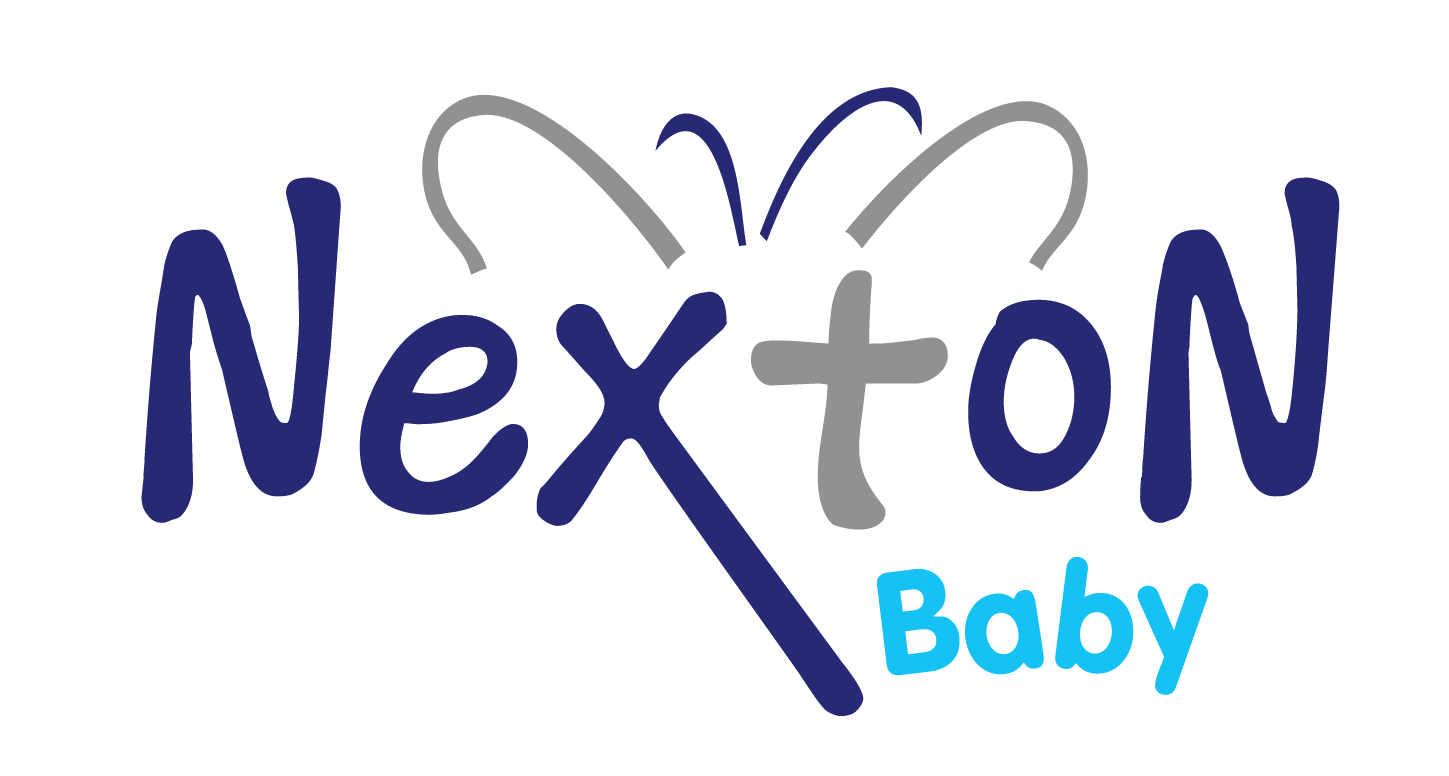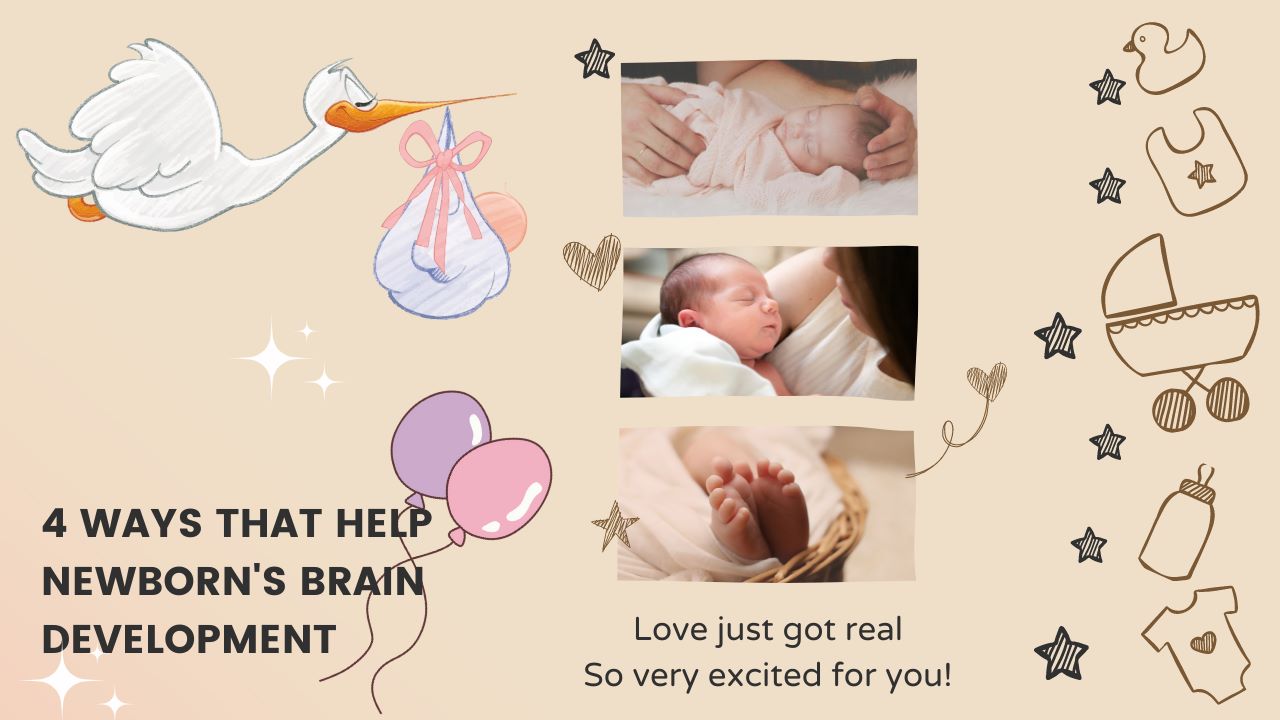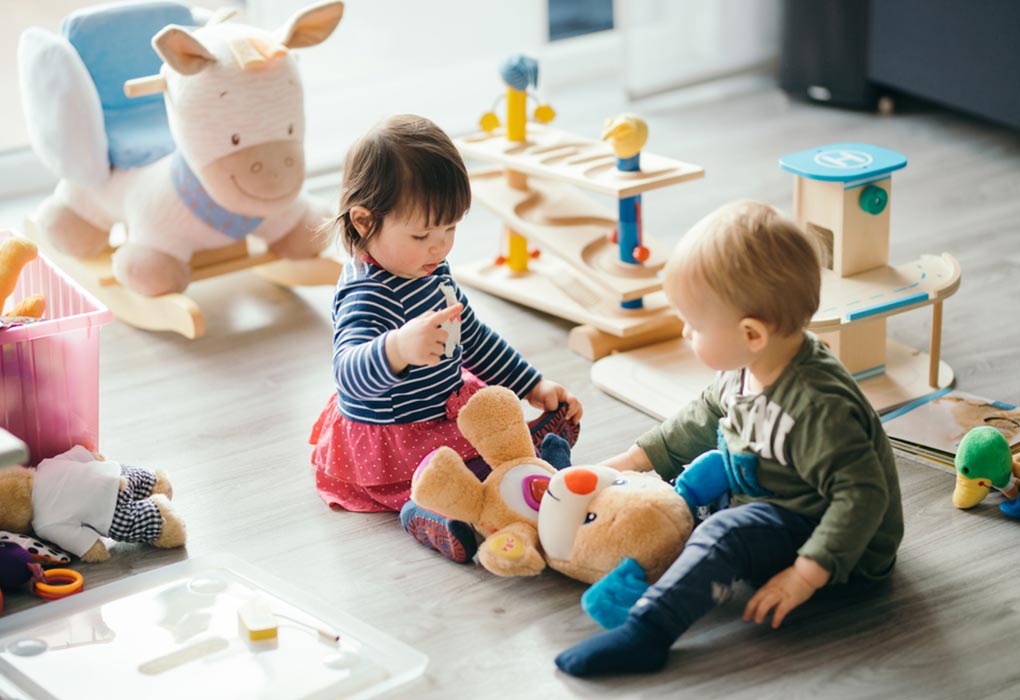Promoting your infant's development is important for their growth and literacy. In this section, we will bandy conditioning and ways that can effectively enhance their cognitive, emotional, and physical development. These approaches will lay a strong foundation for their overall well- being.
Promoting Development through Tummy Time:
Tummy time is an important process for your baby's muscle development, particularly their neck and shoulder muscles. It involves placing your baby on their tummy while they're awake and supervised. This position allows them to exercise by lifting their heads and strengthening their neck and upper body muscles. To start, keep tummy time sessions short, around 2–3 twinkles, many times a day, and gradually increase the duration as your baby grows. As they become more comfortable and confident, you can extend the duration of tummy time. To make tummy time pleasurable, incorporate various engaging toys. Place toys within their reach to encourage reaching and grasping. Conclude with toys with different textures, shapes, and sounds to promote sensitive inquiry. Soft toys with differing colours, rattles, and textured balls can be great options. It's a good idea to use a soft face, similar to a mask or play mat, to add comfort and support during tummy time. This will make the experience more pleasant for your baby. By making tummy time fun and engaging, your baby will be more motivated to share, and they will reap the benefits of this exertion in terms of muscle development and overall physical growth.
Engaging Your Baby's Senses:
Sensory stimulation is essential for your baby's development. Provide age-appropriate toys and experiences that engage their senses. Introduce different textures, colours, and patterns to stimulate their touch and visual senses. Incorporate music and gentle movements to enhance their auditory and visual perception. As your baby grows, engage them in safe sensory activities like finger painting and exploring sensory bins. Always supervise sensory play and ensure materials are safe.
Promoting Interaction and Connection with Your Newborn:
Bonding and interaction play a crucial role in your baby's emotional and social development. Regularly talking, singing, and reading to your baby not only fosters language development but also strengthens the emotional connection between you and your little one. Your voice, facial expressions, and touch provide comfort and reassurance to your baby.
Engage in eye contact with your baby during feeding, diaper changes, or playtime. This helps them feel seen and understood. Skin-to-skin contact, such as holding your baby against your bare chest, can have numerous benefits. It promotes feelings of security, regulates your baby's body temperature, and enhances the bonding experience.
Responding promptly to your baby's cues and needs is crucial for building trust and a sense of security. By being attentive and sensitive to their needs, you create a nurturing environment that supports their emotional well-being. Responding with warmth and affection helps your baby feel loved and valued.
Massaging your newborn:
Baby massage is a beneficial practise for bonding and promoting relaxation and circulation in your baby. Create a calm environment, use baby-safe oils, and start with gentle strokes on their legs, arms, back, and tummy. Adjust the pressure and speed based on their response. Maintain eye contact and talk to your baby in a soothing voice during the massage to strengthen the connection between you. Make baby massage a regular part of your daily routine for relaxation and bonding.




Leave a comment
This site is protected by hCaptcha and the hCaptcha Privacy Policy and Terms of Service apply.